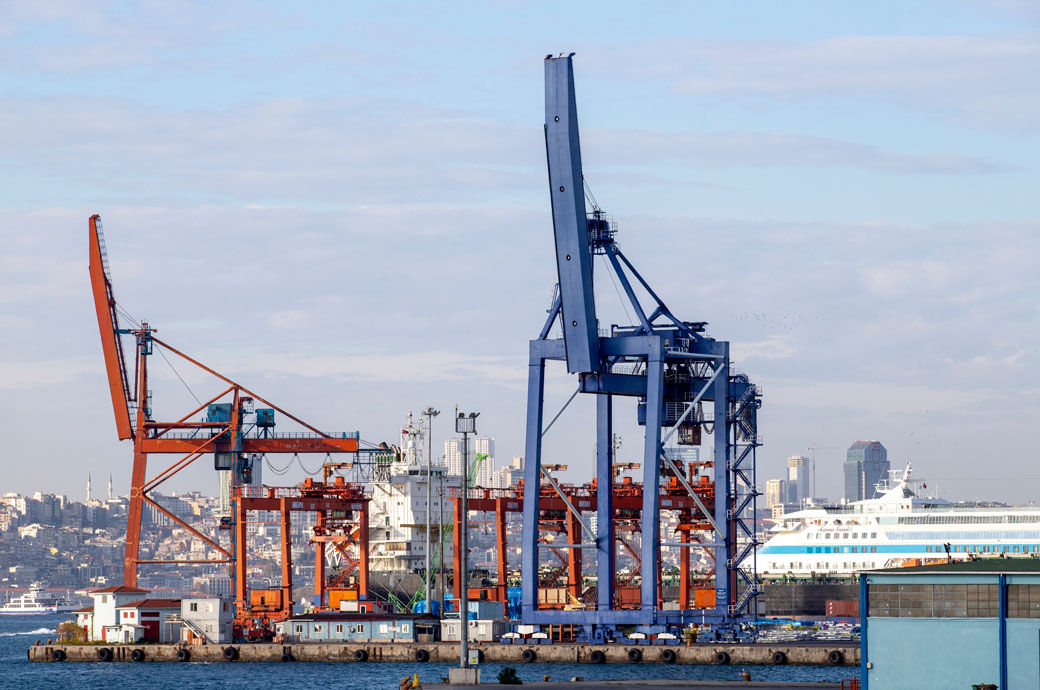The door inches open
This path is more realistic than an "extensive negotiation" method. Maintaining negotiations between sides that do not trust each other is very difficult. Turkish Cypriots are justified in not trusting the Greek Cypriot community, which is strong in economic terms and crowded in population and which forced them out of the state in 1963 and subjected them to atrocities for the next 11 years. This mistrust is justified, especially if this community denies what it has done in the past and teaches its young generation in schools that the whole thing started with Turkey’s "invasion" of the island in 1974 for no reason at all.
If the solution is to be attained step by step, this process must be reciprocal. After opening the border, Mr. Denktas also allowed Greek Cypriots to stay in the north for three days. In return, the Greek Cypriot side has not taken any concrete steps and even makes some additional demands alongside its empty pledges. They want the withdrawal of a considerable number of Turkish troops; settlement of some 20,000 Greek Cypriots in Karpas in reference to a 1977 Denktas-Makarios agreement and reparation of houses in Varosha to be returned to their Greek Cypriot owners. Their purpose appears to be to make excessive demands impossible to accept and then to get rid of the responsibility when they are not met, saying "Turks do not want a solution."
The 1977 Agreement has nothing to do with Karpas. Return of Varosha is stipulated in the 1979 Kiprianu-Denktas Agreement. But there is no reference to reparation of houses in that agreement. Land arrangement can be made only in the last phase of this process and be included in the final solution agreement.
What is more, it is their turn to take a step. The Turkish side can facilitate this step. Lifting the embargo could be considered a possible measure in this regard. The Luxembourg Court of Justice decision foresaw that the certificates of origin required for export be stamped by the Greek Cypriot administration. This was not accepted because it was tantamount to not recognizing the statehood of the north. But since the solution is currently sought in Cyprus’ European Union membership, the Turkish Republic of Northern Cyprus (KKTC) can accept this now. What is more, it preserves its boundaries, state structure and Turkey’s effective guarantee. And the Greek Cypriot side can initiate a new practice that would allow export of the products of the north to the EU, on the grounds that the final status of the agricultural land is preserved.
The European Court of Human Rights has made an erroneous decision in the Loizidou case. Implementation of the decision is impossible. If implemented, endless numbers of cases will follow each other, not only in Cyprus but also in Bosnia-Herzegovina and Karabakh. The sooner you return from loss, the better. This case and all property disputes in regard to Cyprus can be referred to Cyprus for solution. And the solution could take the form of a general swap and compensation. Property sales and purchases will be subject to EU rules anyway after Cyprus joins the EU and a definite period of moratorium expires. As the lifting of embargoes and the property issues are resolved simultaneously, Turkey can offer some gestures to Greek Cypriots. In this regard, Greek Cypriots carrying passports of the Greek Cypriot administration may be allowed into Turkey as tourists. An existing embargo on Greek Cyprus-flagged ships can also be lifted. In the meantime, a symbolic withdrawal of troops may be considered as well. But let’s see their initial steps first.
In this regard, "liberal" commentators should, as they like to put it, go through a "mental transformation" to adapt to the changing circumstances. They have to abandon their Denktas hatred. They have to base their identity on more positive grounds. They have to give up the sophistry that "we wrote and Denktas changed attitude" and become more modest. They have to see that this solution method is different than the Annan plan. They have to understand that the "give-and-disburden" attitude does nothing but encourages the other side complicates a solution. They should not go faster than Greek Cypriots and say "Greek Cypriots won’t accept this." Before reading the domestic and international agenda and making foreign policy proposals, they have to read Gulnur Aybet’s article, "Principle is One Thing and Interest is Another," which was published in daily Radikal’s May 3 issue. They have to explain, if possible, what the "transformation" means in the light of this article.



